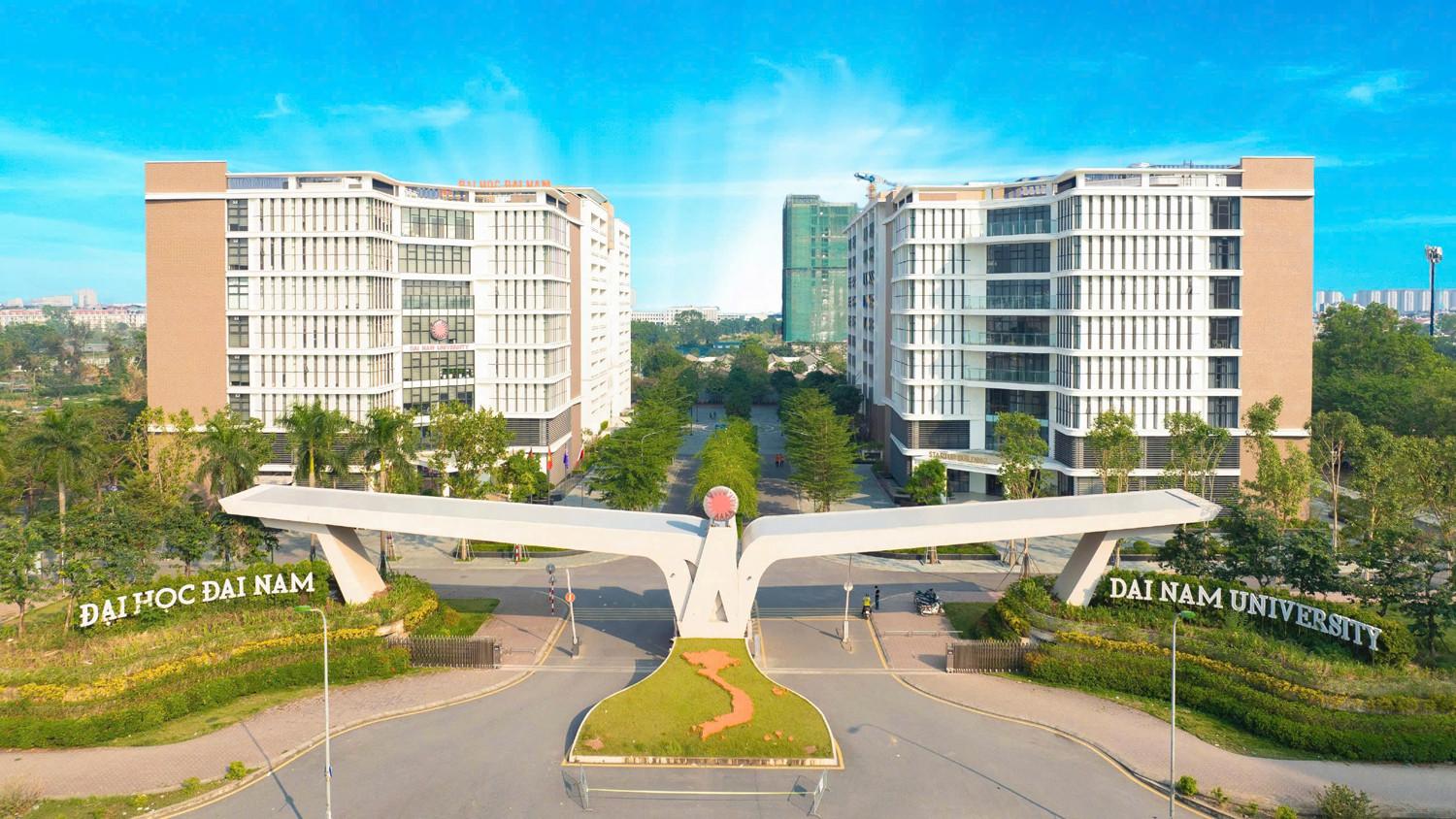University tuition increases, is the quality high?

 |
| A class of 2nd year students of the Tourism Faculty at the University of Finance and Marketing, Ho Chi Minh City - Photo: Nhu Hung |
Accordingly, these schools are given full autonomy, including financial autonomy to improve the quality of training. The most notable point of this project is tuition fees. After the schools announced the project, many students expressed concern about the new tuition fees.
Tuition increase
The University of Finance and Marketing will collect tuition fees according to the plan stated in the project, with the maximum average level for regular universities (mass programs) in the 2015-2016 school year being 14.5 million VND/student/year, increasing to 16.5 million VND/student/year in the 2016-2017 school year.
For students enrolled before the effective date of this decision (March 23), the school will collect tuition fees with a maximum increase of no more than 30% of the previous year from the effective date of this decision.
Not for the school to increase revenue MSc. Hua Minh Tuan affirmed: “Increasing tuition fees is not for the school to increase revenue, but for students to enjoy something more. Previously, all tuition fees collected by the school had to be deposited in the state treasury, but now the school will deposit them in the bank to get interest to build scholarship policies to support disadvantaged students.” |
Ton Duc Thang University will be allowed to collect the maximum average tuition fee for full-time university (mass program) in the 2014-2015 school year of 13 million VND/student/year, increasing to 14.95 million VND/student/year in the 2015-2016 school year and 17.2 million VND/student/year in the 2016-2017 school year.
For students enrolled before the effective date of this decision (January 29), the school will collect a maximum increase of 20% of the previous year's tuition.
Ho Chi Minh City University of Economics will have an average tuition fee for mass programs from the 2014-2015 school year of 13 million VND/student/year, 2015-2016 school year of 14.5 million VND/student/year and 2016-2017 school year of 16.5 million VND/student/year.
Meanwhile, the National Economics University will collect an average tuition fee (for general programs, university level) of maximum 9.5 million VND/student/year for the 2014-2015 school year, increasing to 11.5 million VND/student/year for the 2015-2016 school year and 13.5 million VND/student/year for the 2016-2017 school year.
Similarly, Hanoi University collects an average tuition fee (for general programs, university level) of maximum VND 7.8 million/student/year in the 2014-2015 school year, increased to VND 12 million/student/year in the 2015-2016 school year and VND 14 million/student/year in the 2016-2017 school year.
...Many concerns
After the press reported that the school would apply new tuition fees, many students of the University of Finance and Marketing reacted strongly. Immediately after that, the school's leaders held a meeting with student representatives to provide more information about the tuition fee increase roadmap. Many students and parents are concerned about this roadmap in the current learning conditions.
What students are concerned about is whether the quality of education will be commensurate after the school increases tuition fees. “Currently, we have to study in rented facilities, with limited learning conditions: cramped rooms, crowded classrooms... Why doesn’t the school invest in good facilities so that students can have better learning conditions before increasing tuition fees?” - NTC (a second-year student of the Faculty of Tourism, University of Finance and Marketing) asked.
Many students of Ton Duc Thang University have “cried out” when the school announced the tuition increase roadmap. “The current tuition fee of the school is much higher than other public universities. Now the school has increased the tuition fee again... Will we, the students, enjoy the corresponding benefits when the school increases the tuition fee like this?” - a first-year student of the Finance - Banking faculty of Ton Duc Thang University wondered.
HTN (a second-year student in the Faculty of Public Finance at the University of Economics, Ho Chi Minh City) worried: “Because of my family’s difficult circumstances, I chose a public school with a reasonable and stable tuition fee. Now the school suddenly announced an increase in tuition fees, which means we are facing more difficulties... I hope the school has a policy to support tuition fees and scholarships for poor students.”
According to MSc. Hua Minh Tuan - Vice Principal of the University of Finance and Marketing, the previous tuition fees were 6.8 million VND/year. In the financial autonomy project for the old courses, the school was allowed to increase the fee by no more than 30%, however, the school realized that increasing at this level would put pressure on students. Therefore, after consideration, the school decided to increase by only 10% (7,480,000 VND/year) from the 2015-2016 school year. In August 2015, the school applied the new tuition fee for students of the old courses.
Dr. Nguyen Huu Huy Nhut - Head of Organization and Administration Department of Ho Chi Minh City University of Economics - said that the new tuition fee will be applied to the mass program from the upcoming September 2015 enrollment period. The existing courses will only increase by 20% compared to the regulation of Decree 49 (5.5 million VND/student/year). However, some majors still have lower tuition fees. Those are majors that the school considers necessary for the economy and society but the demand for studying is not high, such as political economy, development economics, agricultural economics, statistics... will have tuition fees equal to 50% compared to the remaining majors.
“The school understands the concerns of current and potential students about the tuition increase roadmap. The school needs to collect such tuition fees to cover the school’s expenses and ensure the gradual improvement of training quality. The above tuition fees have fully calculated the training costs for a student, the school will minimize the collection of additional fees other than tuition fees,” said Mr. Nhut.
Similarly, MSc. Trinh Minh Huyen, Vice Principal of Ton Duc Thang University, also said that the school will apply a new tuition fee framework from the first semester of the 2015-2016 school year. For old courses, the increase will not exceed 20% compared to the current tuition fee (average 11 million VND/year, increased to 13.2 million VND/year). In addition to tuition fees, the school will not collect any additional fees.
Will the quality of training be better?
According to Ms. Huyen, from 2011 to now, Ton Duc Thang University has not adjusted tuition fees (although since the 2012 enrollment period, the school has not committed to keeping tuition fees unchanged throughout the course). "The school has tried to maintain the old tuition fees for a long time, while a series of investment projects have been put into use, creating a modern learning environment at the District 7 campus, Ho Chi Minh City," Ms. Huyen said.
For students of the 2015 class, the school will switch from the previous model for international programs to mass teaching to improve training quality.
Mr. Nhut also said that in order to prepare for the implementation of the autonomy project, over the past three years, Ho Chi Minh City University of Economics has built and converted the entire training program of the school to an advanced program and developed according to the model of modern universities in the world.
“The school is restructuring the lecture hall system to achieve the target of 50 students per class. The classrooms are fully equipped with facilities and equipment to further enhance interaction with learners. The school is also making efforts to gradually equip the classrooms with air conditioning systems,” said Mr. Nhut.
In August 2015, the University of Finance and Marketing will put the 2/4 Tran Xuan Soan campus, District 7, Ho Chi Minh City into operation. New students will enjoy new facilities and classrooms at this campus. According to Mr. Tuan, to increase tuition fees, in addition to student support policies, the school must improve its training programs, curriculum, facilities, etc. All training activities such as equipping students with soft skills, physical education courses, and national defense education are included in tuition fees, and the school will not collect any more.
“For new students, the school will apply an advanced training program. The project allows the school to collect tuition of 14.5 million VND/year, but the school only collects 13 million VND/year, and increases by 15% each year,” said Mr. Tuan.
Dr. Nguyen Duc Nghia (Vice President of VNU-HCM): Must monitor the implementation of school autonomy project. Currently, many universities that offer high-quality programs are allowed to charge correspondingly high tuition fees. Accordingly, students studying in these programs enjoy training programs, facilities, and teaching staff... that are different from those of students in regular classes. I understand that in the pilot project to innovate the operating mechanism of schools that has just been approved by the Prime Minister, schools must clearly state information about the cost of a training course and the criteria to ensure training quality after applying the new tuition fee level. In addition, schools must be able to state how the increased tuition fees will be used to improve facilities, innovate training programs, and improve the quality of teaching staff. Therefore, schools need to announce their autonomy project so that learners and society can check and monitor the implementation of this project. If autonomous schools increase tuition fees but the quality of training remains the same as before the tuition fee increase, it is difficult to accept. |
According to Tuoi Tre
Register for admission consultation 2025
scholarships and tuition support worth up to 55 billion VND

scholarships and tuition support worth up to 55 billion VND








